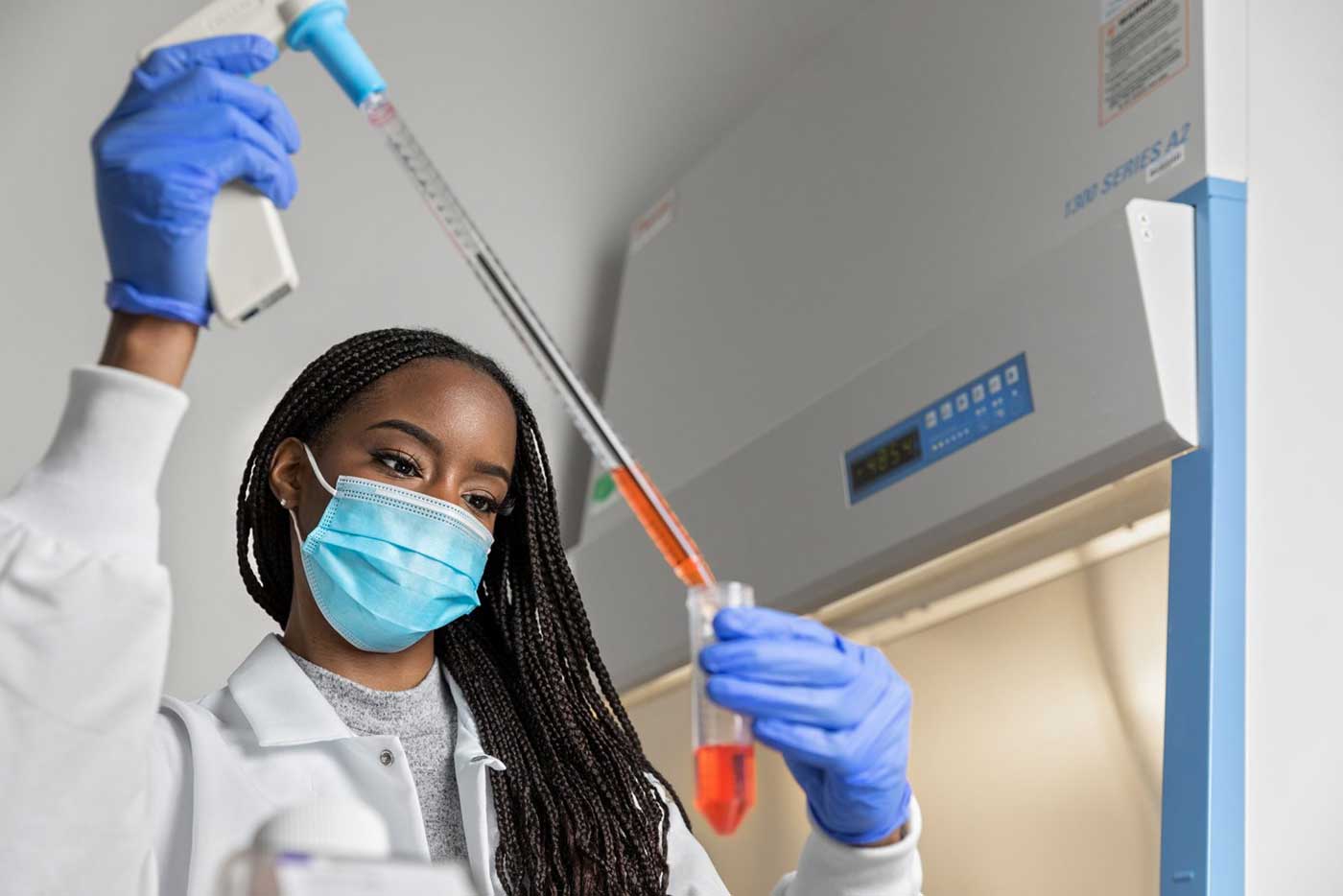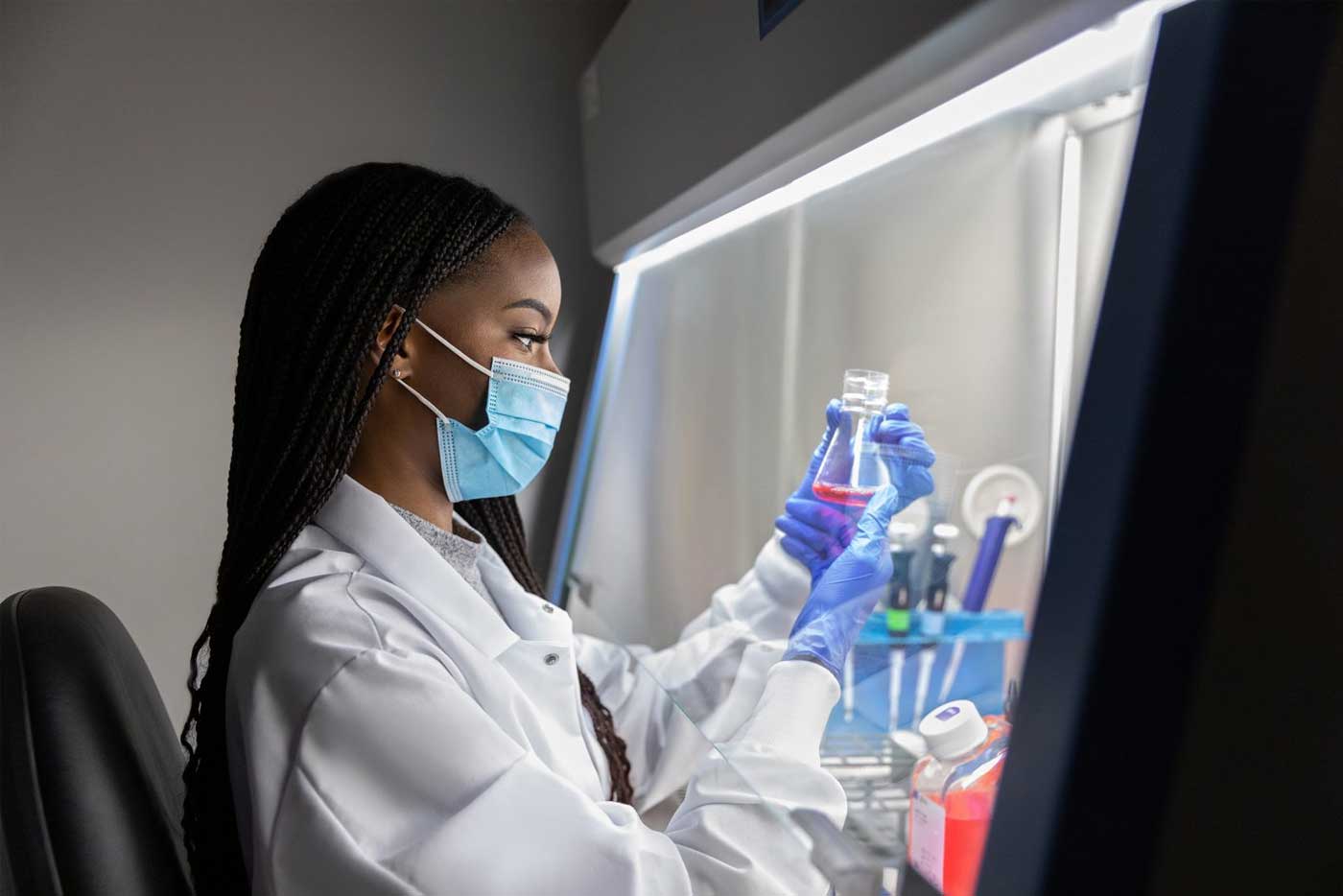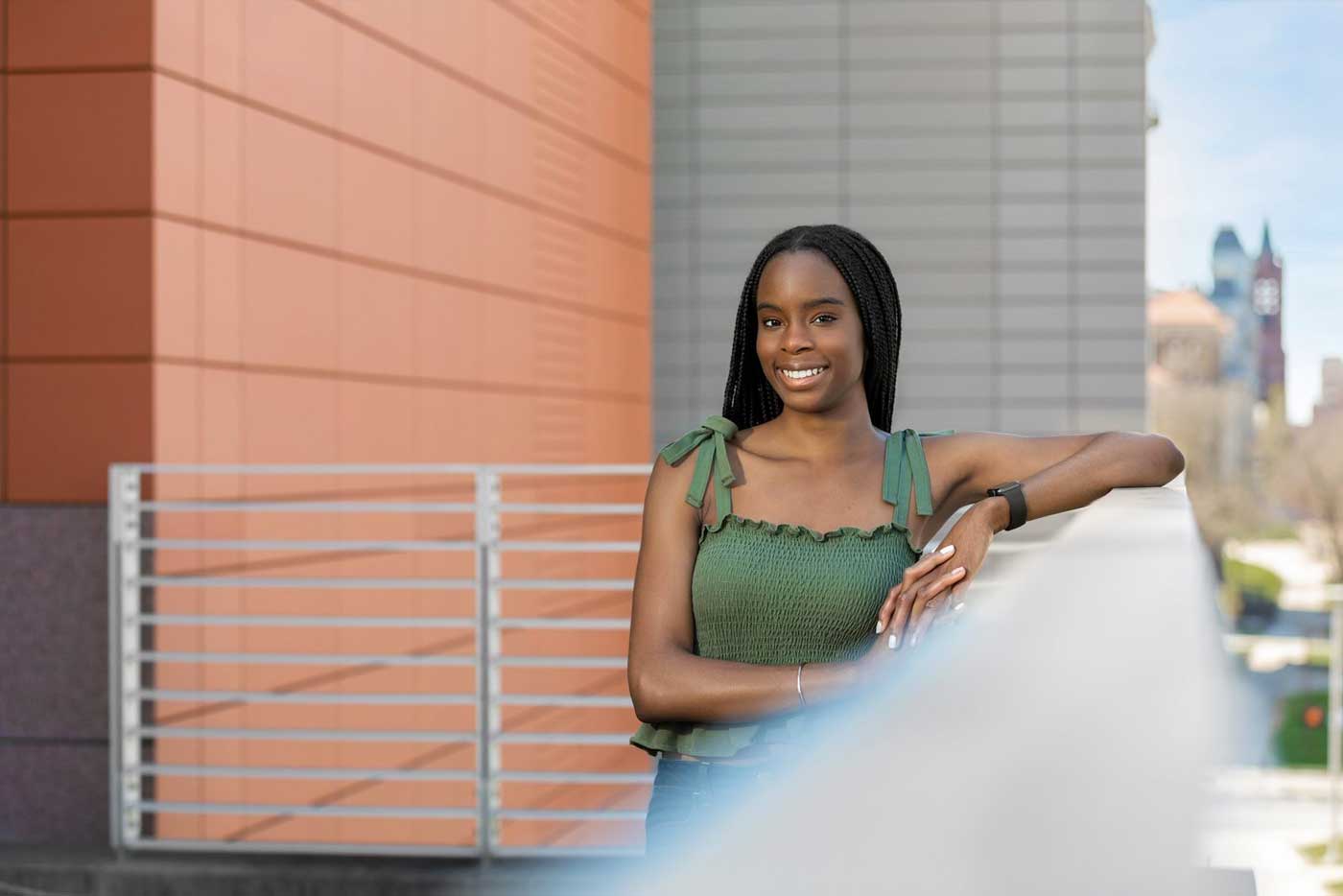
When Ifeyinwa “Ify” Ojukwu ’22 arrived at Syracuse University three years ago, she knew she’d have opportunities to join organizations and conduct research. But she surprised even herself with the amount of meaningful work she’s been able to accomplish through her classes and research.
Ojukwu—a biology and psychology major in the College of Arts and Sciences, and a public health minor in Falk College—has set her sights on becoming a physician and on addressing systemic, race-related disparities through health care policies. “I feel like my interest lies in recognizing vulnerabilities in others and wanting to support them,” says Ojukwu, who grew up in Guilderland, New York. “Medicine is just one way to go about that, but it’s an important way, and one that resonates with my personal and scientific interests, too.”
Although she was always interested in medicine and underserved communities, Ojukwu really became invested in the topic when she took the Falk College public health course Health Disparities and Underserved Populations. “It made me understand that there needs to be a great deal of urgency in addressing those problems for women, people of color, low-income, native and LGBTQ+ communities. It opened my eyes in many ways.” Ojukwu received guidance and encouragement along the way, and she credits Jolynn Parker, director of the Center for Fellowship and Scholarship Advising, with helping her define her long-term goals.
Research Opportunities
For Ojukwu, the COVID-19 pandemic has been both an example of how health care inequities can manifest in communities and an important factor in her research. She’s studied health disparities as part of her public health coursework, including disproportionally high mortality rates from breast cancer among African American women.
“I’ve learned that aspects of our clinical tools themselves, such as the Breast Cancer Risk Assessment Tool (BCRAT), can sometimes perpetuate those disparities and even exacerbate them,” explains Ojukwu. “I’m hoping to address elements of the health care system that contribute to the inequalities, beyond those that manifest due to social determinants of health.” She says that access, late diagnosis and late treatment are all factors in the disparity.

Driven to become more deeply involved in research, Ojukwu explored studies being conducted by faculty at Syracuse University and SUNY Upstate Medical University. Her interest was piqued by the work of Dr. Frank Middleton at SUNY Upstate, so she reached out and was invited to participate in his research on pantothenate kinase-associated neurodegeneration (PKAN), a neurodegenerative disease that develops due to metabolic pathway breakdown.
The PKAN research focuses on patients in the Dominican Republic, so Ojukwu traveled with the team (pre-pandemic) to conduct educational outreach, secure funding, and further their understanding of how this research might shape health outcomes. While there, Ojukwu helped lead informational seminars with patients to educate them about transmission of the disease. Even for someone who knew she was going to have a chance to conduct research, this opportunity to have a positive impact on an underserved community was unexpected. “I would not have thought I’d have a chance to do this type of research and travel if you’d asked me as a freshman,” she says.
Expanding the Curriculum
After witnessing protests across the country last summer related to institutional inequities, Ojukwu worked with a friend to bring a sociology class called Race, Health and Healthcare to the course offerings in spring 2021. The class gives its 20 students a platform to discuss medical issues and race-related health disparities. Over the course of the summer, Ojukwu met with faculty, department chairs and deans to add the course to the curriculum on a trial basis, and she says it was well worth the effort.
As a result of her interests, Ojukwu was recruited as an undergraduate liaison to the biology department’s diversity and inclusion committee, where she works with faculty, staff and other students to evaluate ways of making the curriculum more inclusive. At a virtual retreat to discuss department policy, the committee recommended including a statement on each biology course syllabus indicating the department’s commitment to promoting diversity, inclusion and safe spaces in the classroom. “It feels like a small change, but it is a testament to the biology department’s willingness to openly promote equity and inclusion,” Ojukwu says.
Making Her Presence Known

This spring, at the Office of Diversity and Inclusion’s Racial Equity Symposium, she presented her breast cancer research as a case study highlighting racialized clinical tools, including the BCRAT—the first time she had ever given a talk outside of a classroom setting. In April she represented Syracuse University at the virtual ACC Meeting of the Minds conference, hosted by the University of North Carolina at Chapel Hill, where she gave a presentation on her PKAN research. “Each of these opportunities has really allowed me to step into the next dimension of what my career, what my advocacy, might look like,” she says.
As she wraps up her junior year, she feels grateful for the opportunities provided to her at Syracuse University. “All of this has made me more excited for what the future might hold, because I’m honing those skills in a way that will make me better poised to effect the change I want to make over the course of my career.”
– An SU Story by Lisa Maresca originally published on April 20, 2021.
